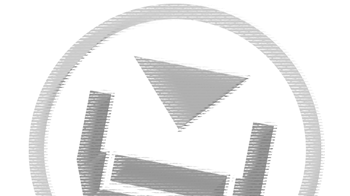Tips for Getting Papers Organized, Part 1
You might think that the part of your home clutter which will take longest to organize is the most massive pile of it. Oftentimes however, it is organizing paper clutter which takes forever—even if it looks like it isn’t going to be a big hassle. You can fit a lot of paper inside a single […]
You might think that the part of your home clutter which will take longest to organize is the most massive pile of it. Oftentimes however, it is organizing paper clutter which takes forever—even if it looks like it isn’t going to be a big hassle. You can fit a lot of paper inside a single folder or binder, after all, and you have to go through every sheet when you’re sorting.
In the interest of making organizing papers at home as fast and stress-free as possible, I want to share a few tips with you. Let’s get started.
1. First of all, go paperless to stop the influx of new paper clutter.
Nothing is more frustrating (or counterproductive) than clearing out a bunch of papers this week only to end up replacing them with incoming papers next week—especially if you could have avoided it.
If you haven’t yet gone paperless with bank statements, insurance documents and so forth, do so. Not only will this reduce the amount of new paperwork you have to file or throw away, but it will also help to protect the environment.
2. Get three large bins and label them with “Recycle, Digitize, or Keep.”
Next, you should purchase several large plastic tubs to use to sort out all of your existing paperwork. One should be labeled “Recycle,” the next “Digitize,” and the third “Keep.”
3. Recycle as much as possible, digitize everything you can, and keep only what you need to.
Your task at this point is pretty simple—though it will probably be very time-consuming. You need to look through all of your papers and distribute them between these three bins.
Your goal should be to eliminate as many of the papers as you can. That means that if you can possibly recycle something, you should. If you need to hang on to it for whatever reason, ask yourself if you really need a physical copy.
Most papers can probably be stored digitally. To do this, you can snap a photo or take a scan, and then upload it to your hard drive. This has three benefits. Firstly, it frees up space. Secondly, it makes it easy to sort everything and find it in an instant. Thirdly, you can make copies effortlessly. You can save as many backups as you want.
What should you keep in physical form? Hold onto official original documents—for a lot of government purposes, copies are considered unacceptable. Signed original documents of any nature are wise to keep. You also may want to hold onto original documents which are sentimental in nature—children’s artwork, letters, and so on.
Once you have completed the steps above, you should have a lot of paper clutter out of the way. Paper clutter management isn’t easy, and it takes time to learn how to organize important documents at home. But hopefully soon everything will be in its right place. For more advice, please read on to Tips for Getting Papers Organized, Part 2.


Comments are closed.